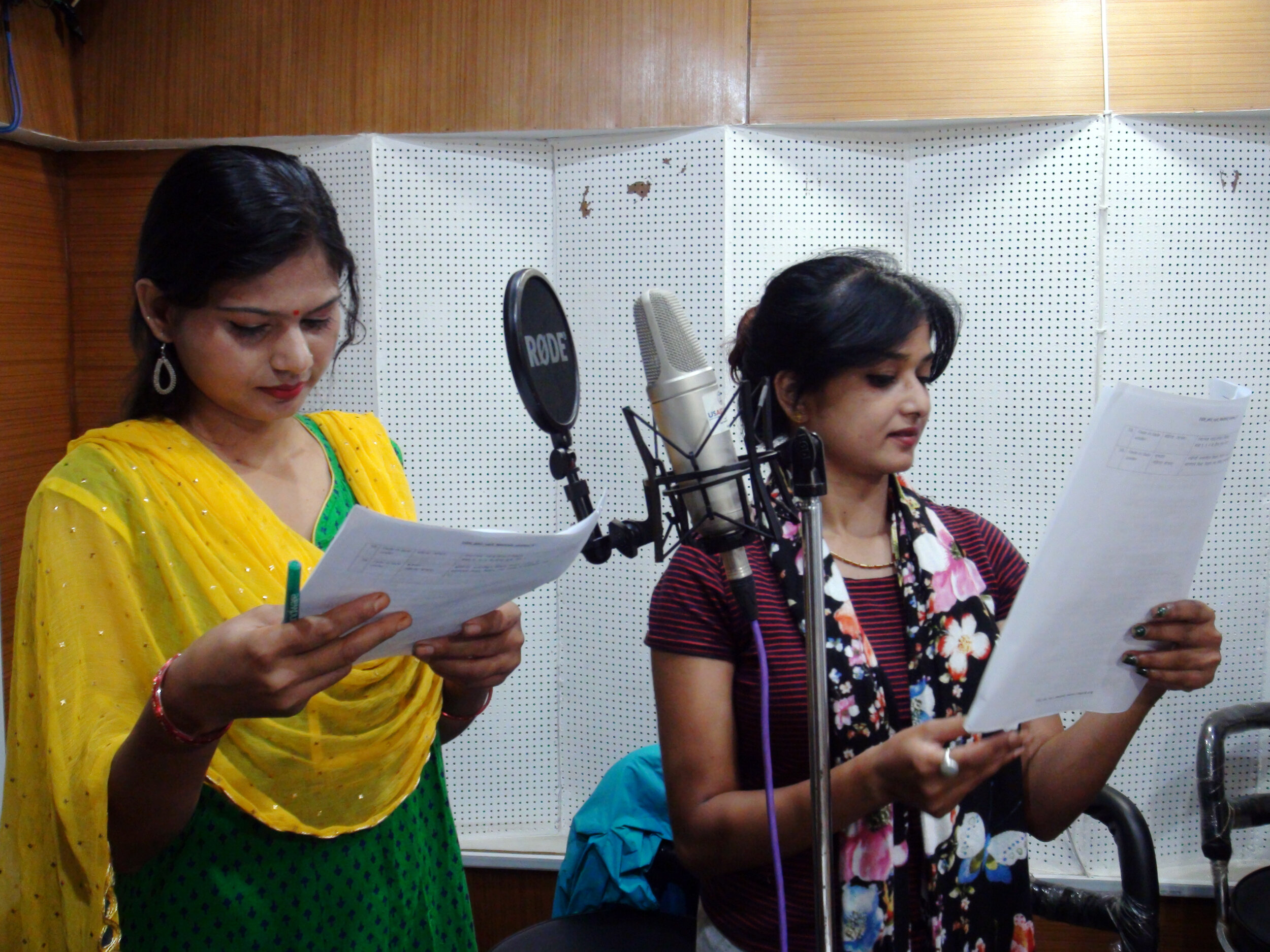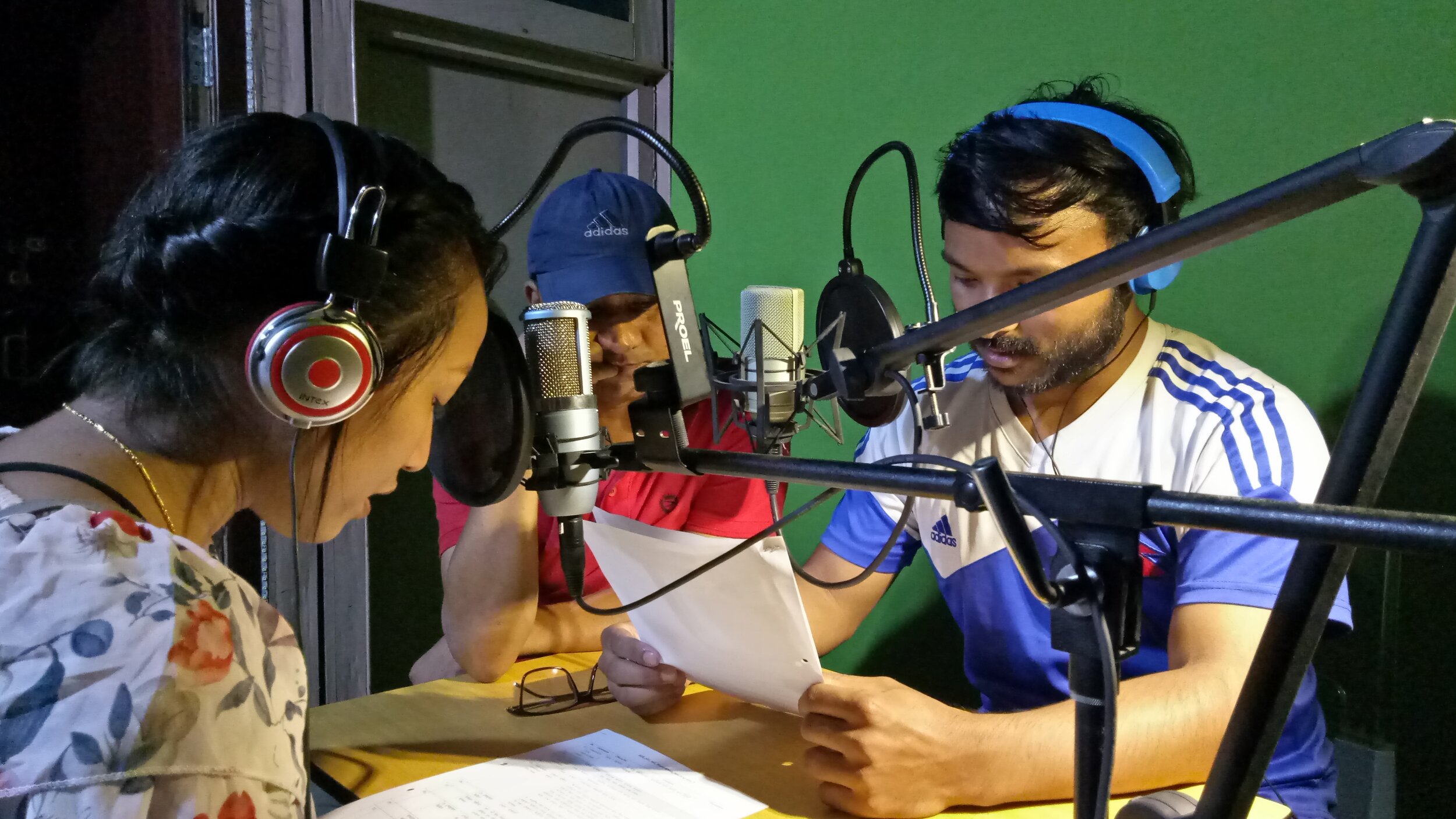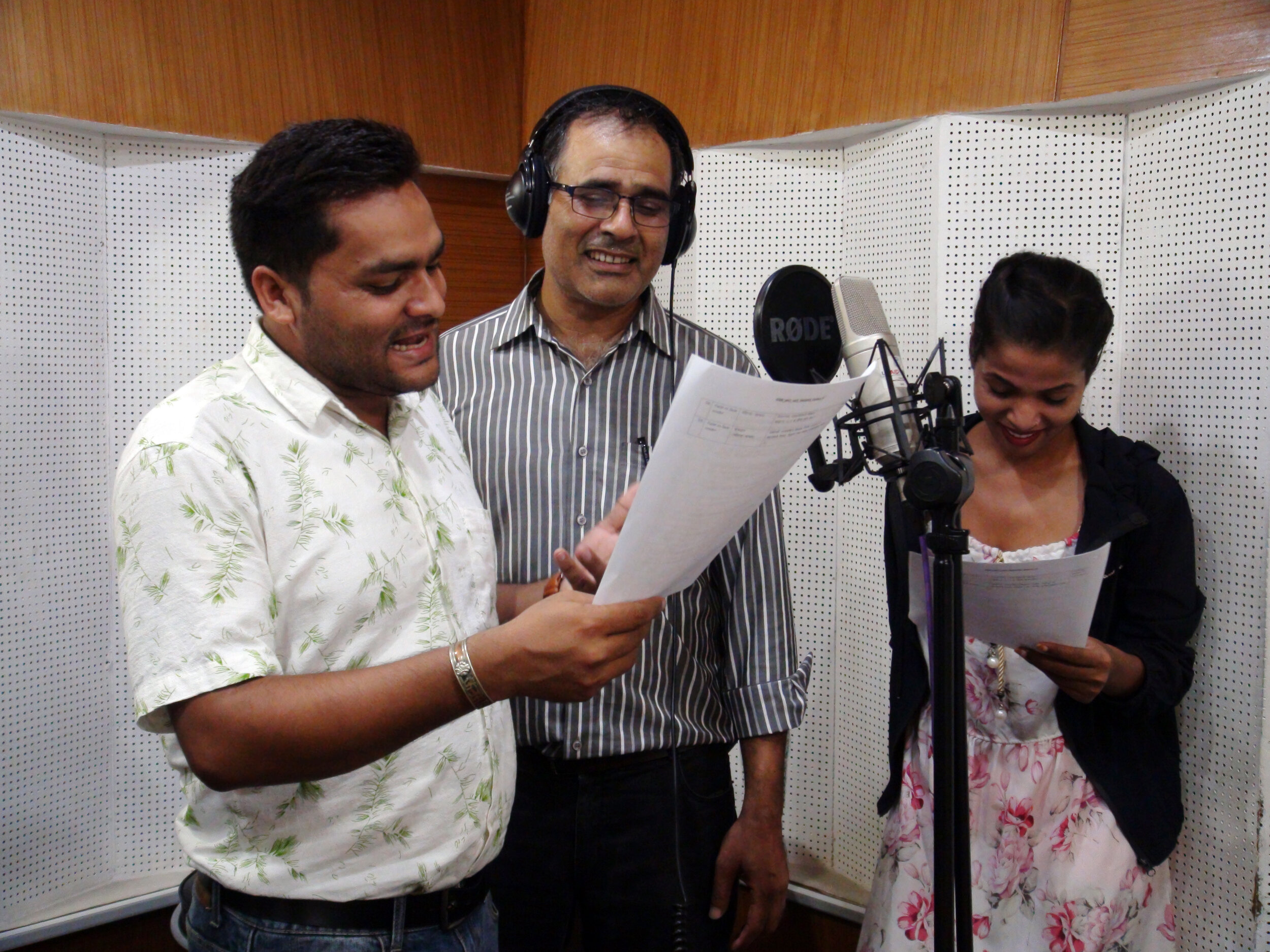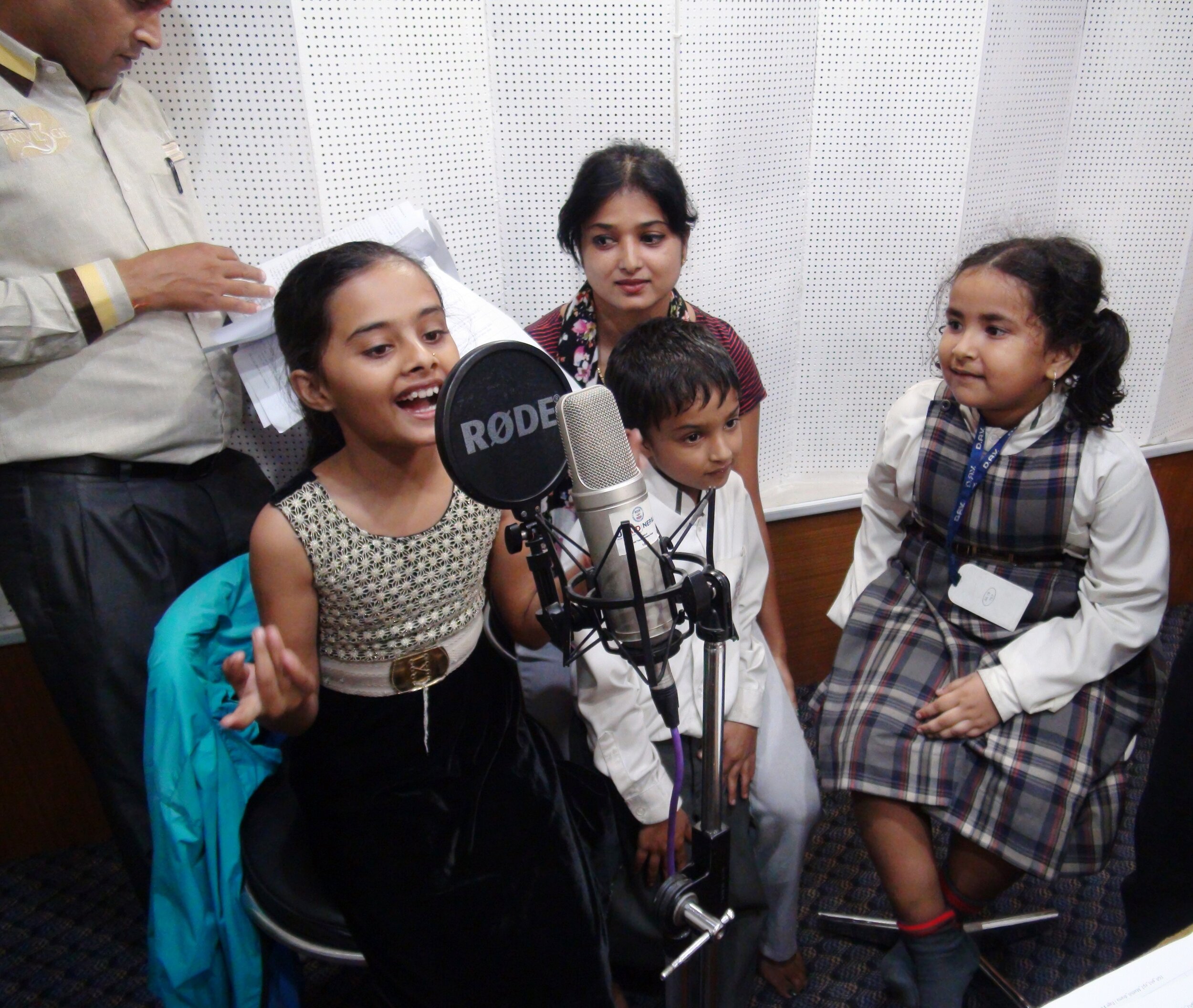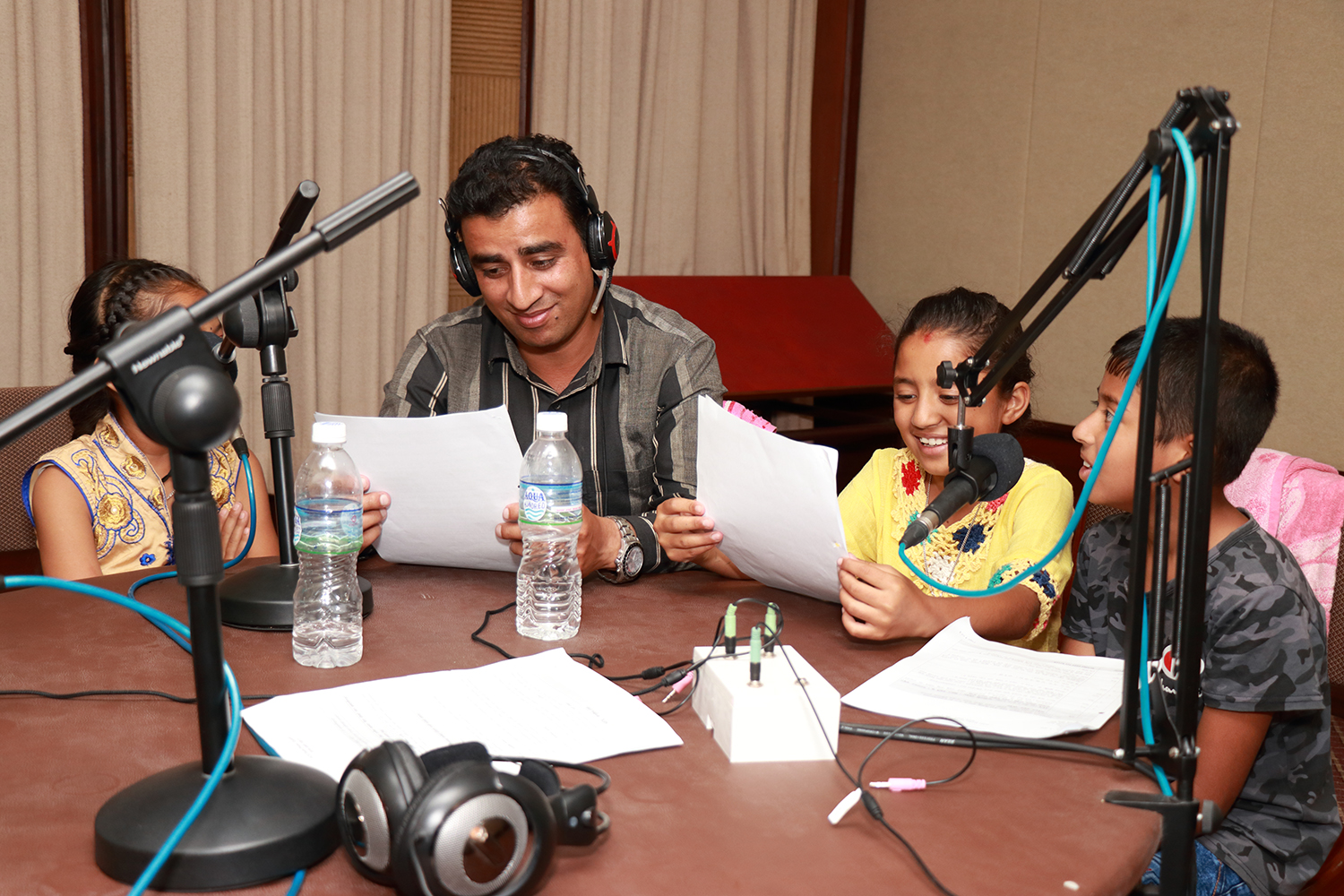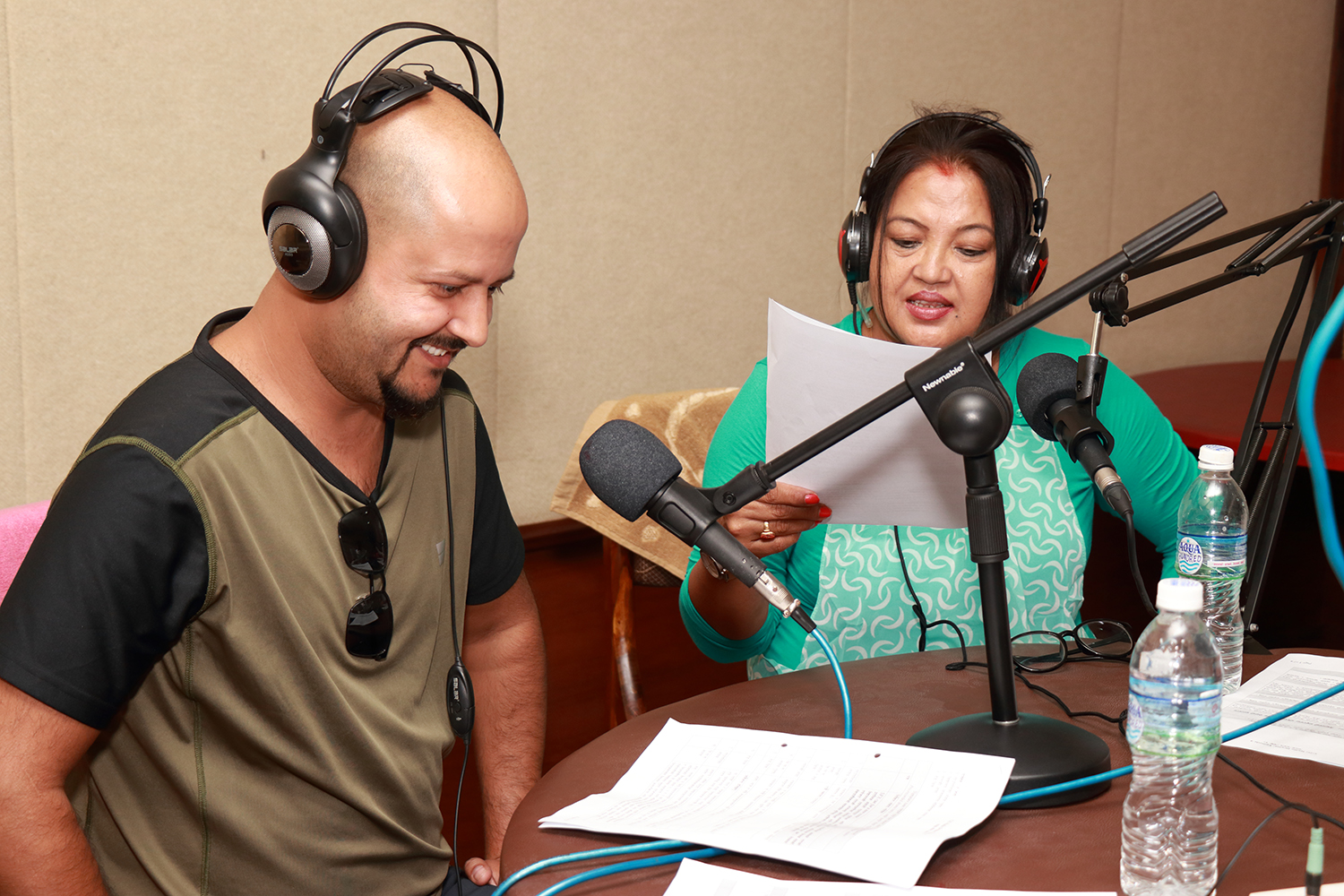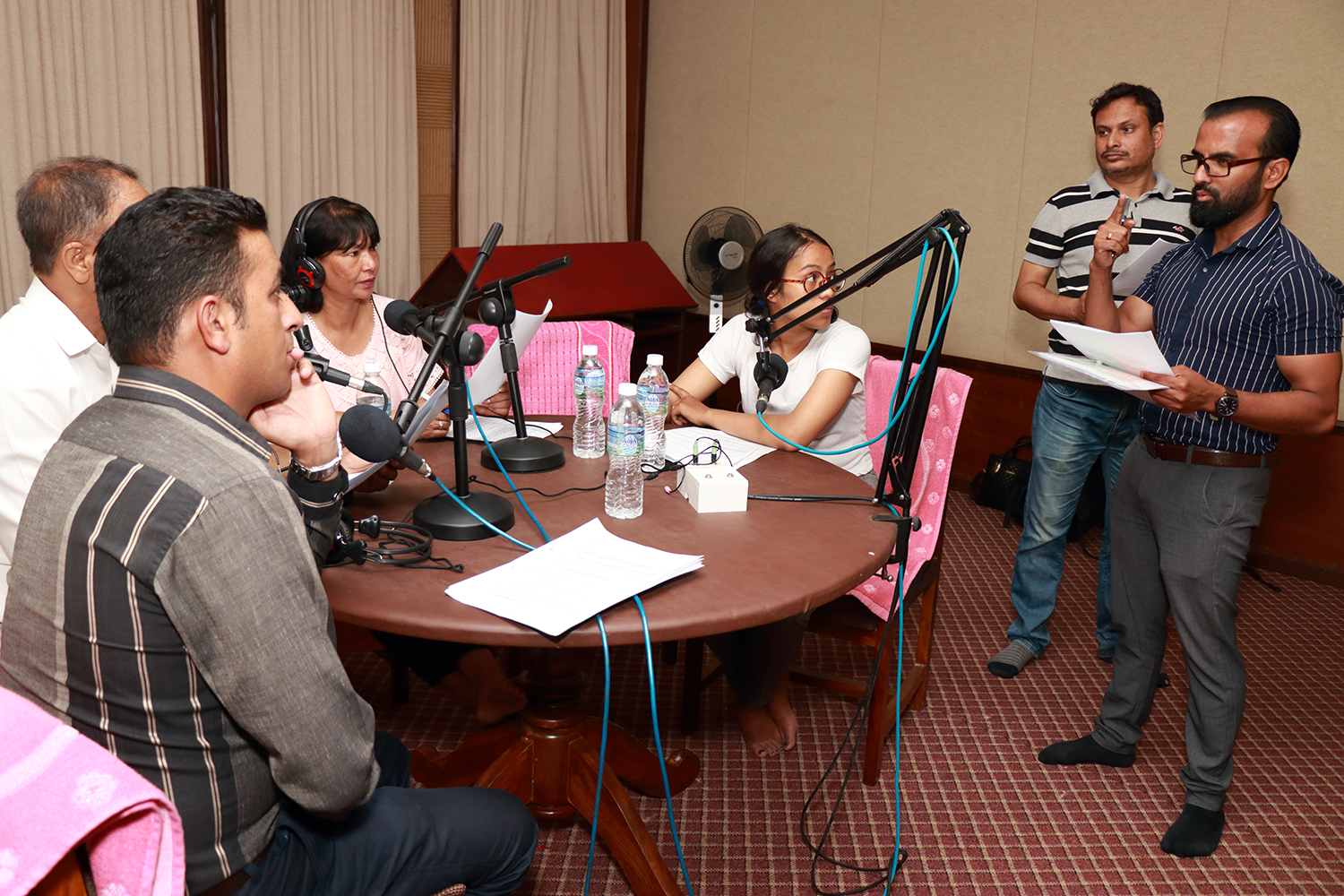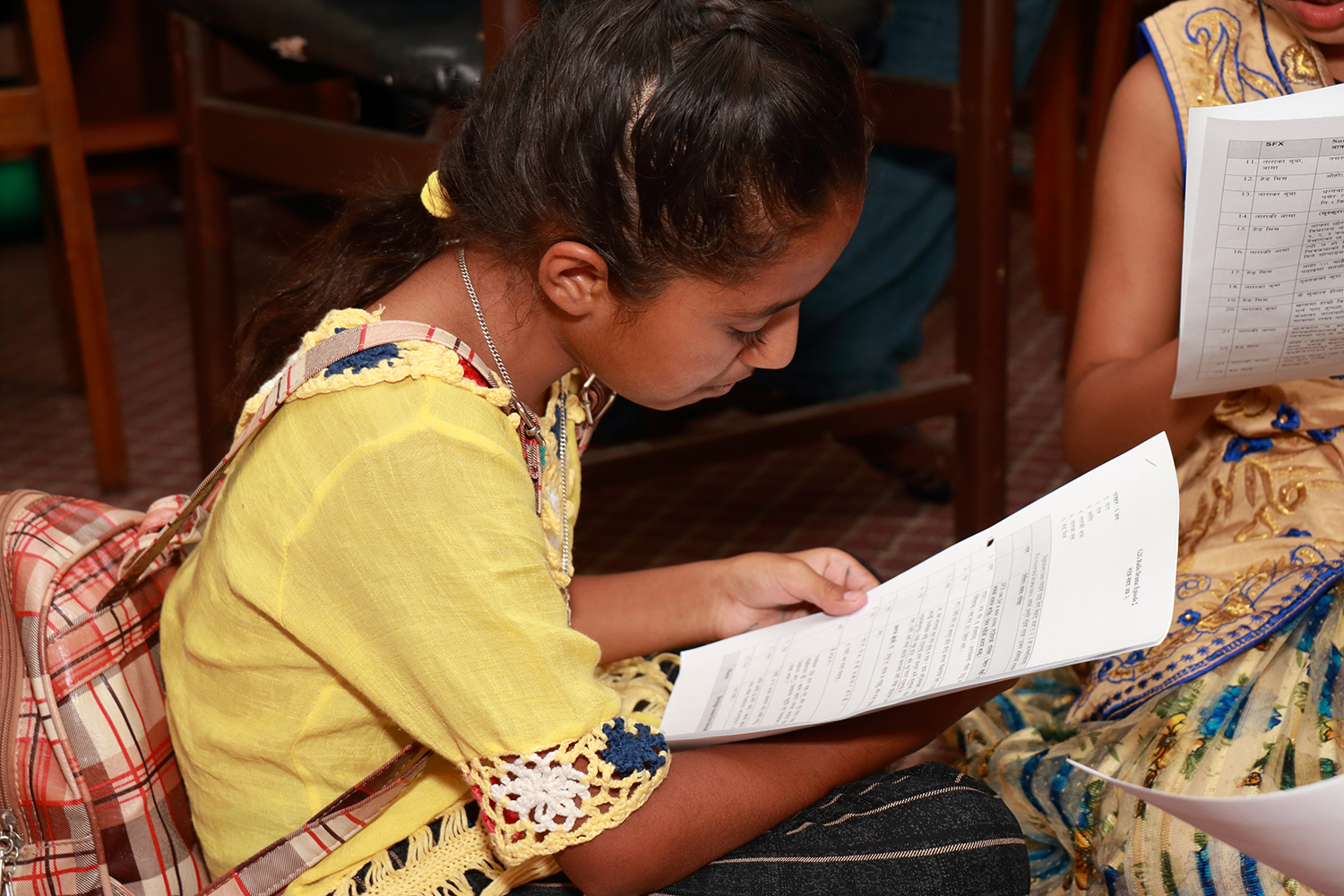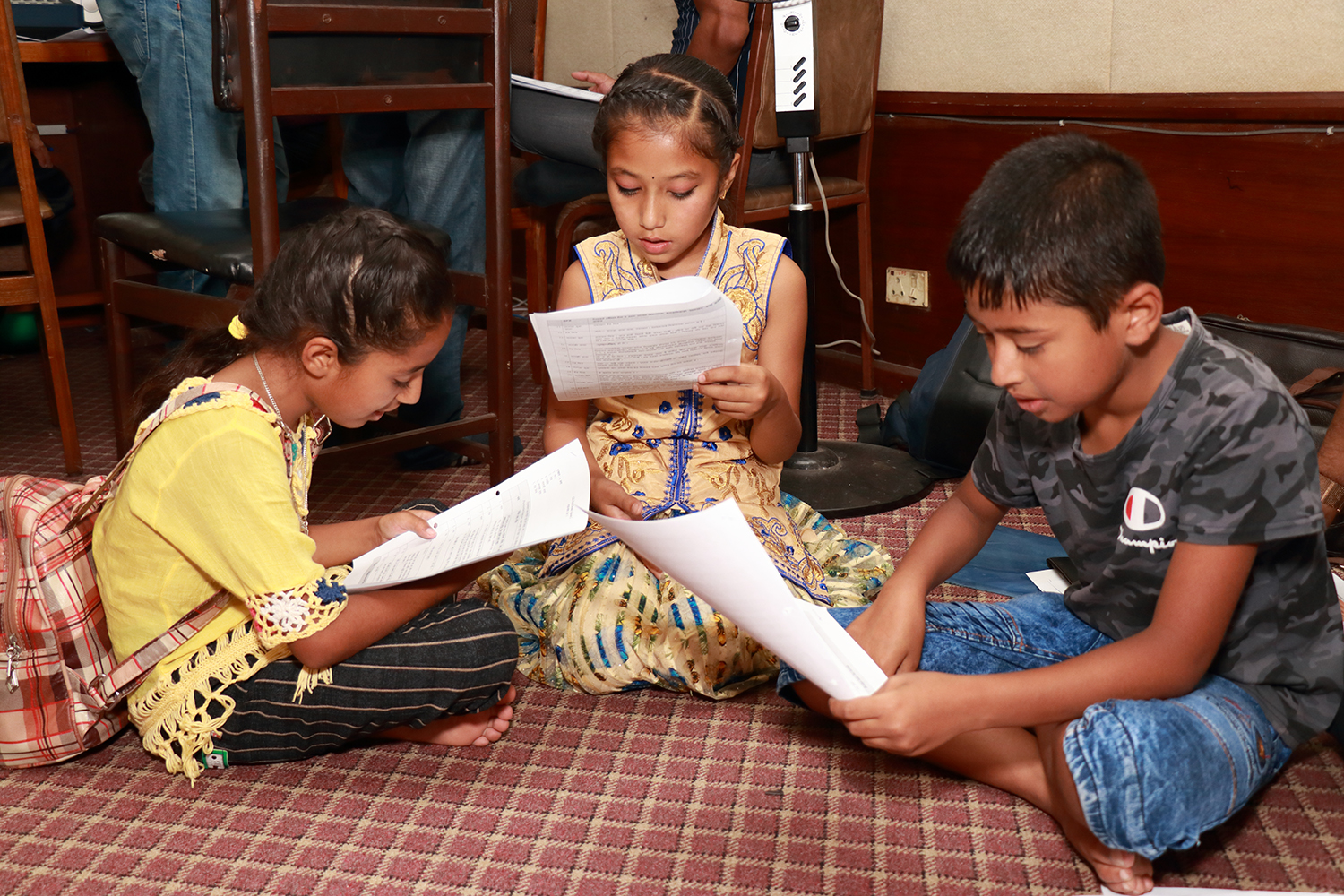The Another Option team on the ground in Nepal has just recorded additional public service announcements in two more languages, Newari and Maithili. The PSAs support our ongoing work on the USAID/Nepal’s Early Grade Reading Program (EGRP).
Another Option records new Public Service Announcements in Nepal
Another Option just recorded several new public service announcements as part of our ongoing work on the USAID/Nepal’s Early Grade Reading Program (EGRP). The radio spots were developed in close partnership with Nepal’s Ministry of Education. The PSA’s will be broadcast in several languages on radio across ten districts in Nepal.
Another Option is in the studios in Nepal!
Our Nepal-based team, led by Prabodh Acharya, is in the recording studio this month to create public service announcements (PSAs) to share the importance of early grade reading in ten additional local languages, at the request of the Government of Nepal.
Another Option’s work in Nepal supports USAID’s Early Grade Reading Program (EGRP). The five-year, $53.8 million project supports the Ministry of Education to improve the foundational reading skills of Nepali primary school students in grades one through three.
Early Grade Reading Project Public Awareness Report Published
To support Another Option’s ongoing work promoting Early Grade Reading in Nepal, the Social and Behavior Change Technical team for the RTI-managed and USAID-funded project designed a national study to measure awareness of key messages and behaviors related to early grade reading. In partnership with various branches of the Government of Nepal, the study used a mixture of quantitative and qualitative methods to interview families about their beliefs and behaviors related towards reading and their children.
Overall key findings identified that 57.1% parents and 81.9% teachers had listened to radio PSAs published by Another Option, and 39.1% parents and 50.5% teachers had listened to the radio program “Ramailo Padhai, Digo Sikai” (in English, Reading is Fun). Significant numbers of parents and teachers could recall key messages from the materials as well.
The full report is available here for download.
Early Grade Reading in Nepal – Media Orientation
“My grandfather inspired me to read and always brought me books. Now when I travel, I always remember to bring back books for my children.”
Pushpa Basnet, CNN Hero 2016-17
A young Nepali girl poses with her favorite book during a recent Another Option field visit.
The commitment and resolve of these statements reflect the focus of the media orientation workshop organized by the Department of Education (DOE) and the USAID-funded Early Grade Reading Program (EGRP).
Held on February 6 in Kathmandu, the workshop was the first opportunity for 28 Nepali print and broadcast media journalists to come together and understand the program and their role in strengthening the program. Using presentations and group discussions, Focal Person, Bishnu Adhikari, Deputy Director, DOE and EGRP Chief of Party, Edward Graybill along with other technical team leads, shared strategic ideas about the relationship between EGRP and the government’s National Early Grade Reading Program (NEGRP).
Further, participants received information packets with community mobilization and peer advocacy materials, developed and designed by the program, with the intention to facilitate better communication amongst beneficiary parents and between parents and teachers about children’s reading habit.
“In the 2014 earthquake, houses with strong foundation withstood the damage. Early grade reading is the foundation to improve our children’s future.”
Mr. Baburam Poudel, Director General, Department of Education (DOE)
Mr. Baburam Poudel, Director General, Department of Education welcomed the participants and opened the workshop by reiterating the critical nature of quality early grade reading and stressed all involved stakeholders to work in tandem to improve access, quality and management of primary education.
Education expert, Mr. Dhananjaya Sharma called for teachers and other stakeholders in primary education to encourage two-way interactions with students and to change classroom settings to make it child-friendly among others.
Special guests at the orientation included comments by Ms. Basnet, named as a CNN Hero in 2016-2017. She stressed the importance of reading in her own personal development from a shy student to a confident woman.
Deputy Director Mr. Adhikari spoke at length about the National Early Grade Reading Program (NEGRP) and raised issues about program’s implementation including ownership of the program, lack of technical resources and lack of commitment of policy making and implementation.
“Teaching is all encompassing – it is as cultural, social and familial process.”
Dhananjaya Sharma, Education Expert
A key message that came out of the interaction between the journalists and the EGRP and the government teams was that a strong sense of camaraderie and commitment to this important work was required from all stakeholders to implant the love for reading in Nepali children from the very early grades.
A similar workshop will be organized in Bhaktapur, Kaski, Banke, Saptari and Kanchanpur districts in February and March
This blog was prepared by Adheep Pokhrel, Communication Manager for USAID/Nepal’s Early Grade Reading Program managed by RTI International
Early Grade Reading Brings a Peaceful and Happy Life
Story by Adheep Pokhrel, Communications Director, Early Grade Reading Program. Another Option is a subcontractor specializing in social and behavior change communication (SBCC) under USAID/Nepal’s Early Grade Reading Program (EGRP) managed by RTI International. EGRP operates in 16 districts in Nepal’s terai (plains) and far west regions. Targeted to parents of students in Grades 1 – 3 from minority ethnic populations and their teachers. Another Option and its research partner, GTA, conducted qualitative research among these target audiences. The qualitative research findings were used to develop messages and the SBCC strategy.
A Message Development Meeting called by the Department of Education was held on February 8, 2016.
What do you say to parents to encourage them to support their children in early grade reading, or to be engaged in their children’s early grade reading program?
Turning correct information into memorable and effective communication messages is not as easy as it might first appear. The Department of Education and USAID’s Early Grade Reading Program (EGRP) organized a Stakeholder’s Message Development Meeting held on February 8th to develop key messages that will be used in radio advertisements, social mobilization and a communication campaign targeted to parents, teachers and key stakeholders.
Representatives from the Central Line Agencies (CLA) and the EGRP communication team worked together to develop messages that combined parents’ and teachers’ personal goals with desired behaviors. The participants actively engaged in the message development session and produced a series of creative messages that reinforced positive behaviors and came in many forms, including songs, poems and rhyming verse and even a promise of a peaceful and happy life.
The meeting was led by Mr. Bishnu Adhikari, Deputy Director, Department of Education. In his remarks he emphasized the role of the media and education journalists in mobilizing communities to promote early grade reading, and the need for correct messages.
Mr. Madhav Prasad Dahal, Deputy Director, Distance and Open Learning Unit, NCED, said in his formal remarks, “My office welcomes collaboration with EGRP to develop radio Public Service Announcements for early grade reading that will be aired on national radio. My staff is available to work with EGRP.”
Through community and media mobilization, EGRP will focus on building understanding of the importance of children reading in their first language among parents and communities, as well as engaging parents and community-based organizations in evidence-based practices to support young readers.
The meeting was held at the National Center for Education Development (NCED) in Bhaktapur. Participants included government officials from the Central Line Agencies (CLAs) and the EGRP communication team.


